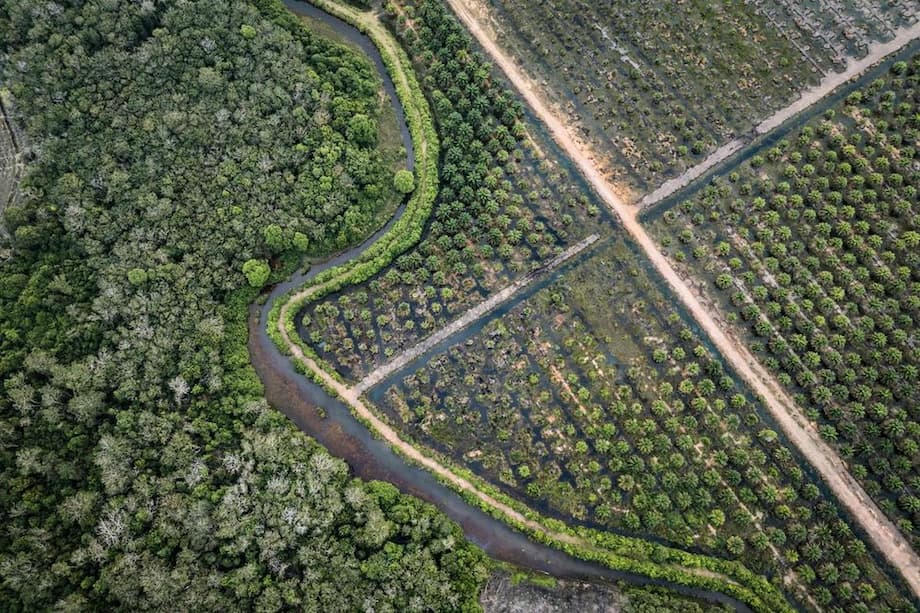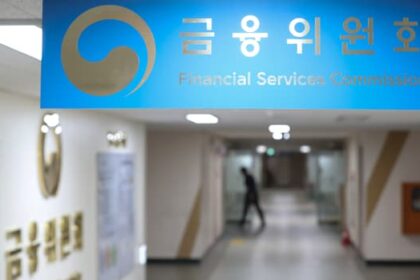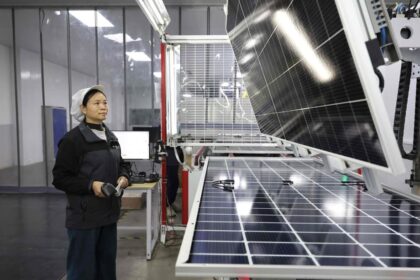US and Indonesia Reach Landmark Tariff Exemption Deal
The United States has agreed in principle to exempt Indonesian exports of palm oil, cocoa, and rubber from a 19% tariff that had been in place since August 7 under President Donald Trump’s trade policies. This breakthrough, confirmed by Indonesia’s chief economic minister Airlangga Hartarto, marks a significant shift in trade relations between the world’s largest economy and Southeast Asia’s biggest exporter of these key commodities.
- US and Indonesia Reach Landmark Tariff Exemption Deal
- Why Were Tariffs Imposed in the First Place?
- What Led to the Tariff Exemption?
- Economic and Market Impact: A Win for Indonesia
- What Does This Mean for Global Commodity Markets?
- Challenges and Next Steps
- Broader Implications for Indonesia’s Economic Strategy
- Reactions from Business and Industry
- How Does This Fit into the Bigger Picture of US-Asia Trade?
- In Summary
The exemption will take effect once both sides finalize the agreement. However, no specific timeline has been set, as the US continues to negotiate tariffs with other countries. The move is expected to have far-reaching implications for Indonesia’s economy, global commodity markets, and the broader landscape of international trade.
Why Were Tariffs Imposed in the First Place?
Tariffs are taxes imposed by governments on imported goods, often used as tools to protect domestic industries or as leverage in trade negotiations. In 2018 and 2019, the Trump administration imposed a series of tariffs on a wide range of imports, citing the need to protect American jobs and industries from what it described as unfair foreign competition. Indonesia, despite being among the first countries to strike a tariff deal with the US in July, ended up facing the same 19% rate as other Southeast Asian exporters like Thailand and Malaysia, and just below Vietnam’s 20% rate.
For Indonesia, these tariffs were particularly painful. The country is the world’s largest exporter of palm oil and a major supplier of rubber and cocoa. The US market is a crucial destination for these products, and the tariffs significantly increased costs for Indonesian exporters, threatening their competitiveness and the livelihoods of millions of smallholder farmers.
What Led to the Tariff Exemption?
The breakthrough came after months of intense negotiations. Indonesia offered substantial incentives to the US, including:
- Proposing to boost imports from the US by up to $34 billion, far exceeding the US trade deficit with Indonesia (about $19 billion).
- Committing to purchase large quantities of American crude oil, liquefied petroleum gas (LPG), airplanes, and agricultural products.
- Pledging zero tariffs on nearly all US goods entering the Indonesian market.
These offers were designed to address US concerns about its trade deficit and to create a more balanced, reciprocal trade relationship. Airlangga Hartarto emphasized that Indonesia’s sovereign wealth fund, Danantara, and state-owned energy firm Pertamina would play key roles in facilitating US investments, particularly in fuel storage infrastructure and the mining sector.
According to Airlangga, the exemption applies specifically to products not produced in the US—namely palm oil, cocoa, and rubber. Once the agreement is finalized, tariffs on these goods will be reduced to zero or close to zero, providing a major boost to Indonesian exporters.
Economic and Market Impact: A Win for Indonesia
The removal of tariffs is expected to have an immediate and positive impact on Indonesia’s economy. As the world’s largest palm oil exporter and a major supplier of rubber and cocoa, Indonesia stands to gain significantly from improved access to the US market. Exporters will benefit from lower costs, increased competitiveness, and the potential for higher sales volumes.
Market analysts predict that the exemption could help Indonesia achieve its ambitious economic growth targets. Airlangga Hartarto has stated that certainty over US tariffs, combined with progress in free trade talks with the European Union, could help Indonesia reach a 5.4% growth rate by 2026, up from an estimated 5% this year. This optimism is echoed by global investors, who are increasingly looking for stable and predictable markets.
Airlangga Hartarto, Indonesia’s chief economic minister, explained the significance of the deal:
“Certainty over US tariffs and recent progress in talks about a free trade agreement with the European Union could boost Indonesia’s economic growth, helping the government reach a 5.4% target for 2026. This brings an optimistic perception from the global market since most investors are looking for certainty, and Indonesia is one of the countries that provide global certainty.”
Beyond immediate trade benefits, the deal is also expected to attract foreign investment into Indonesia’s industrial sector. The government aims to replicate the success it has had with Chinese investment in nickel processing by drawing in US and other international investors to develop facilities for processing palm oil, rubber, cocoa, and even silica sand (used in solar panels and semiconductors).
What Does This Mean for Global Commodity Markets?
The US is a major consumer of palm oil, cocoa, and rubber, which are essential ingredients in food, cosmetics, automotive, and manufacturing industries. By removing tariffs on Indonesian exports, American companies can source these raw materials at lower prices, potentially reducing costs for end consumers and supporting US manufacturing jobs that rely on imported inputs.
For Indonesia, the deal could lead to increased export volumes and a stronger trade balance with the US. It also sends a signal to other trading partners that Indonesia is open for business and willing to make bold moves to secure its place in global supply chains.
Potential Ripple Effects
The agreement may also influence trade negotiations with other countries. Indonesia is currently in talks with the European Union for a free trade agreement, and the US deal could serve as a template or bargaining chip in those discussions. Other Southeast Asian nations, such as Thailand and Malaysia, may seek similar exemptions or improved terms in their own negotiations with the US.
Meanwhile, the US is likely to use this agreement as an example of how reciprocal trade and investment commitments can lead to tariff relief. This could shape future US trade policy, especially as it seeks to diversify supply chains and reduce reliance on any single country or region.
Challenges and Next Steps
While the agreement has been reached in principle, several hurdles remain before it can be fully implemented. Both sides must finalize the details of the exemption, and the US is currently preoccupied with other tariff negotiations. No official timeline has been announced, and the US embassy in Jakarta has yet to comment publicly on the deal.
There are also broader geopolitical and economic considerations. The US is keen to secure reliable sources of critical minerals and commodities, especially as global supply chains face disruptions from geopolitical tensions and climate change. Indonesia, for its part, wants to move up the value chain by attracting investment in processing industries and advanced manufacturing, such as solar panels and semiconductors.
Another key aspect of the negotiations is the proposed US investment in Indonesia’s fuel storage infrastructure. This partnership, involving Danantara and Pertamina, aims to enhance Indonesia’s energy security and facilitate smoother energy trade between the two nations. Such investments could further deepen economic ties and create new opportunities for collaboration in sectors beyond commodities.
Broader Implications for Indonesia’s Economic Strategy
The tariff exemption is part of a broader push by Indonesia to position itself as a reliable and attractive destination for global investment. The government is actively seeking to develop industrial facilities for processing its key commodities, with the goal of moving beyond raw material exports and capturing more value within the country.
Indonesia’s strategy includes:
- Encouraging foreign investment in commodity processing industries (palm oil, rubber, cocoa, nickel, silica sand)
- Developing infrastructure for energy storage and distribution
- Promoting the production of solar panels and semiconductor wafers
- Negotiating favorable trade terms with major partners like the US and EU
This approach is designed to create jobs, boost economic growth, and ensure that Indonesia remains competitive in a rapidly changing global economy.
Reactions from Business and Industry
The news of the tariff exemption has been welcomed by Indonesian exporters, industry groups, and the business community. The palm oil, cocoa, and rubber sectors employ millions of Indonesians, many of whom are smallholder farmers. Lower tariffs mean better prices for their products and improved livelihoods.
Financial analysts and market observers also see the deal as a positive development. It reduces uncertainty, encourages investment, and strengthens Indonesia’s position in global supply chains. US companies that rely on imported palm oil, cocoa, and rubber are likely to benefit from lower input costs and more stable supply arrangements.
One Indonesian business leader commented:
“This is a win-win for both countries. Indonesian exporters get better access to the US market, and American companies can source high-quality raw materials at competitive prices.”
How Does This Fit into the Bigger Picture of US-Asia Trade?
The US-Indonesia tariff exemption is part of a broader trend of shifting trade alliances and supply chains in the Asia-Pacific region. As the US seeks to reduce its dependence on China and diversify its sources of critical commodities, countries like Indonesia are becoming increasingly important partners.
At the same time, Indonesia is leveraging its vast natural resources and growing consumer market to attract foreign investment and secure favorable trade deals. The country’s proactive approach to negotiations—offering substantial economic incentives and market access—demonstrates its commitment to playing a leading role in regional and global trade.
In Summary
- The US has agreed in principle to exempt Indonesian exports of palm oil, cocoa, and rubber from a 19% tariff, pending finalization of the agreement.
- The deal follows months of negotiations, with Indonesia offering to boost US imports by up to $34 billion and pledging zero tariffs on nearly all US goods.
- The exemption is expected to benefit Indonesian exporters, support economic growth, and attract foreign investment in commodity processing and infrastructure.
- The agreement could influence trade negotiations with other countries and shape future US trade policy in the Asia-Pacific region.
- While the deal is not yet finalized, it signals a new era of cooperation and opportunity for both Indonesia and the United States.












